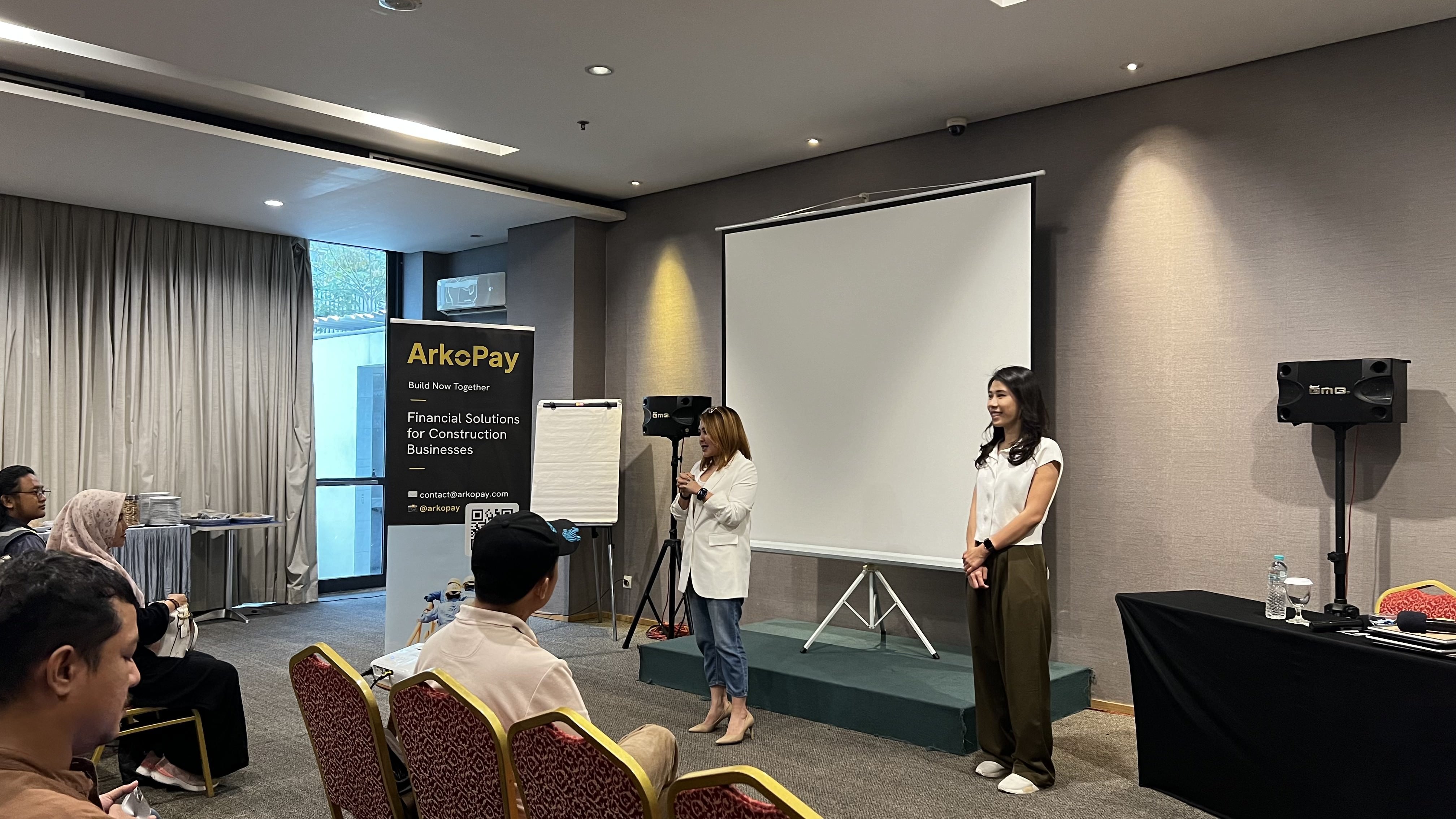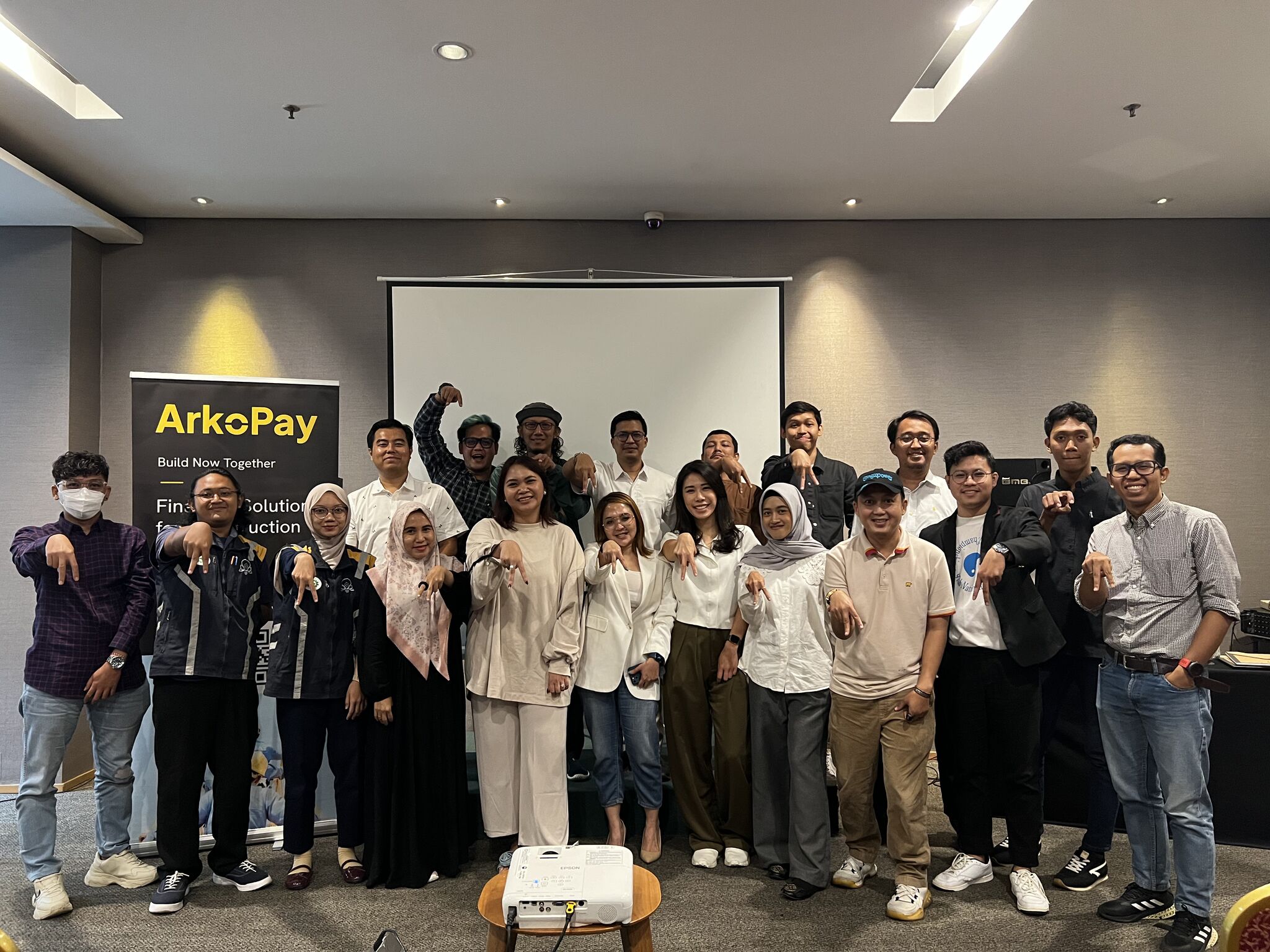Singapore
Ten Questions with Tenity — Laura Lukito: Blending fintech ambitions, family ties, and builder spirit
Moses Xiao
Moses is the Marketing Manager of Tenity based in Singapore. He is focused on driving growth for fintech startups in APAC.

%20TQWT%20(800%20x%20400%20px).png)
At Tenity, we believe innovation starts with conversation. Breakthroughs happen when people exchange ideas, challenge assumptions, and see the world differently. These conversations spark stories, stories shape bold ideas, and bold ideas are brought to life by founders with the vision and grit to solve real-world problems.
With Ten Questions with Tenity, we’re opening the door to those stories. We’re sitting down with the founders in our ecosystem to go beyond the pitch decks: to uncover the motivations, mindsets, and defining moments that shape the people building the future of finance and technology.
In this edition, we sat down with Laura Lukito, a Batch 7 alumna of the Spring 2024 Singapore Fin/Tech Accelerator Program by Tenity.
Laura is the Co-Founder and CEO of ArkoPay, a fintech startup in Indonesia that’s reshaping how small-to-medium construction businesses access capital, streamline operations, and unlock their full potential. A trailblazer in her industry, she was recently named to the Forbes 30 Under 30 Asia list, Class of 2025.
From managing spreadsheets in Seattle to walking concrete sites in Jakarta, experimenting with gourmet treats to crunching data, and even co-managing her family’s hospitality business—Laura is a true multi-hyphenate with a journey that’s anything but typical.
In this interview, she shares how her upbringing shaped her mindset, how she’s navigating a traditionally male-dominated industry, and what keeps her grounded through it all.
Let’s start with an introduction—what is ArkoPay and what was the original problem you set out to solve? How has the business evolved since then?
I’m Laura, Co-Founder and CEO of ArkoPay. We provide financial tools and affordable financing solutions for construction SMEs in Indonesia, helping them pay workers on time and complete projects more efficiently.
It started as a simple idea: serving construction SMEs that traditional banks often overlook. Since then, we’ve grown into a broader construction ecosystem player.
In addition to financing, we now support material procurement, connect contractors with service providers, and partner with a wide range of financial institutions—from P2P lenders to banks—to serve our clients more holistically.
What brought you into the world of construction fintech and how did your international experience influence your perspective?
I grew up around my family’s construction business, which has been around for over 25 years, so the industry’s always felt familiar. But my own background is in accounting. I worked in corporate finance where I saw firsthand how hard it was for smaller players to access capital.
My dad started out as a small contractor, and back then, getting working capital was even tougher than it is today. I wanted to help bridge that gap using fintech and support others in the same position to build more efficiently.
Working in Seattle for almost a decade really shaped my thinking. The pace is faster, and I learned to think bigger and with more purpose. My last job there was at an e-bike startup, and I loved the open, collaborative culture. I knew I wanted to bring that back with me to ArkoPay.
But I always planned to return. My family’s in Jakarta, and my dad would ask me every year when I was coming home. Eventually the urge to build something on my own won out. And of course, I missed Asian food!
Going back to your accounting background and growing up in a family of entrepreneurs. How have those early influences shaped your mindset and leadership as a founder?
The mindset was definitely ingrained early, but there was never any pressure. What really shaped me was watching my parents overcome challenges and keep moving forward. That inspired me to constantly look for opportunities.
Even when I was working in corporate, I always had little side hustles on the side—selling kombucha, donuts, all kinds of things. At one point, my place was full of scoby jars until my brother finally threw them out!
Having an accounting background been a huge asset, especially in fintech. Honestly, every founder—no matter the industry—should have at least a basic understanding of their company’s financials. I’m super comfortable with numbers, which helps me assess situations quickly, make informed decisions, and analyze customer financials when we’re deciding on working capital disbursements. It also makes conversations with financing partners smoother.
Having that confidence with data also gives me clarity, especially when things get messy. I can step back, look at the numbers, and make sound decisions based on evidence rather than panic. That’s been a game-changer for me as a CEO.
You founded ArkoPay with your co-founder Asri Anjarsari, building in the traditional, male-dominated construction industry. Have you felt the impact of gender dynamics or unconscious biases along the way?
It was nerve-wracking at first. As a woman—and a relatively young one—I definitely felt it in meetings and at project sites. But we’ve learned to lean into it. We know our value, and we let the results speak for themselves.
We haven’t faced overtly biased questions, like “how do you balance family and work?”—maybe because Asri is a mom of three and balances it all so well. But I’ve definitely had people question why I’m in this business. They’ll say things like, “Why not start something more typical for women?” It’s subtle, but you feel the framing. I try to flip the conversation and focus on the why: why this industry matters, what we’re solving, and what the data shows.
Interestingly, it’s also been an advantage in some ways. On project sites, people are often more polite or collaborative when they see women involved. Meetings run more smoothly, and there’s less posturing. So we’ve learned to use that to our benefit.

You’re also involved in your family’s ventures like Hotel Neo Group. How do you manage time and energy across multiple businesses, and what personal philosophy keeps you grounded through the highs and lows?
Office location! I set both my ArkoPay and family business offices in the same building, just on different floors. Jakarta traffic is wild, so this helps a lot. I also block specific time slots each week for each business. That way, the teams know when to check in. Of course, things shift if there’s an emergency, but having a set routine makes all the difference. And with the family business… I can’t slack off or I’ll lose the last name!
As for my philosophy, I celebrate small wins. While I’m very result-oriented, I’ve learned to stay focused on progress. Especially during tough times, recognising even small steps forward keeps both me and the team motivated.
You were a finalist on The Big Spark, pitching in front of big-name VCs and founders. What was that experience like—how did it differ from something like Demo Day and what did you learn from it?
It was intense. The cameras, the lights—it felt very real and nerve-wracking. There was even a giant red countdown clock ticking away, though it didn’t show up on screen!
Compared to Demo Day, which is more data-driven and focused on metrics, The Big Spark was more about narrative and storytelling. It was a bit like show business. But the best part was meeting founders from across Southeast Asia. That was incredibly fun and inspiring.
%20-%201-min.jpg)
Thinking back to before you joined Tenity's Fintech Accelerator, what were the key motivations that led you to apply for the program?
A friend of mine, Cynthia Susinto, Co-Founder and CEO of Pin’J, had been through the program and spoke very highly of it.
I wanted to learn from the best in fintech and get honest feedback on what needed fixing or improving. I felt Tenity’s ecosystem and network could help ArkoPay grow and scale.
Among all the resources provided by the program—mentorship, masterclasses, network connections—what stood out the most for you, and can you share a concrete example of its impact?
The one-on-one mentorship was invaluable. It was really flexible. I could book sessions based on what I needed. Early on, I focused on marketing, investment, and fundraising with the Tenity team.
There were also two masterclasses that really stuck with me. One was with Jed Ng, an angel investor who explained how investors evaluate startups. It was eye-opening to see things from their perspective and helped me refine my pitch. The other was from Anna Gong, a female founder who spoke about her experience building a company in the United States, which I found both inspiring and relatable. She also shared the story of Liquid Death—regular water marketed as an edgy lifestyle product with bold branding. It reminded me how powerful storytelling is, even in fintech.
Since graduating from the program, what milestones are you most proud of—and what’s next on the horizon for ArkoPay?
Since last year, we’ve doubled our revenue. Some months even saw us break even or turn a profit. That’s a big win.
We also launched a new project management tool in partnership with a financial institution. It helps us monitor project progress and pause capital disbursement if issues arise, a safeguard for both contractors and financing partners.
The next steps? Keep growing revenue, expand our product offerings, and support the ecosystem with even better tools.

Lastly, what’s one piece of advice you’d give to an early-stage founder navigating their next strategic decision?
Test fast. Validate faster. It’s okay if something doesn’t work. Just figure out why and pivot quickly.
As startup founders, we’re often exploring uncharted territory. It’s not about getting it right the first time—it’s about learning fast enough to eventually get it right.
From rethinking construction finance in Jakarta to championing a new generation of women founders in fintech, Laura’s journey is marked by bold leaps beyond comfort zones, steady determination, and an unshakable sense of purpose. For her, progress isn’t about chasing trends—it’s about building lasting systems that work, for the people who’ve long been overlooked.
Stay tuned for more Ten Questions with Tenity, where bold ideas come to life. Inspired by her journey? Apply to Tenity's programs now and let us help you take your startup to the next level. Learn more at https://www.tenity.com/programs.
